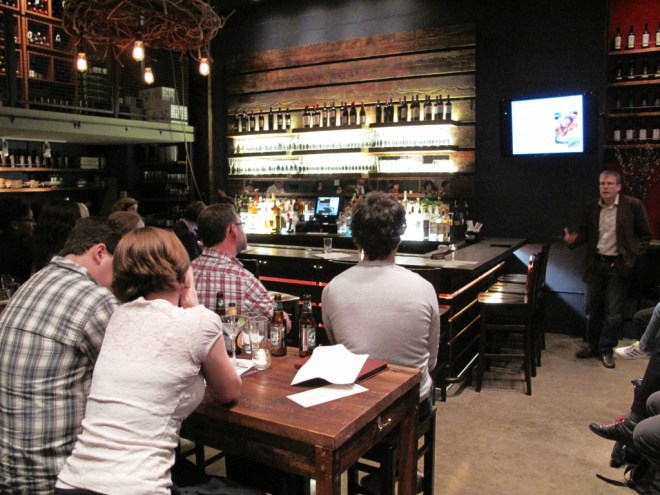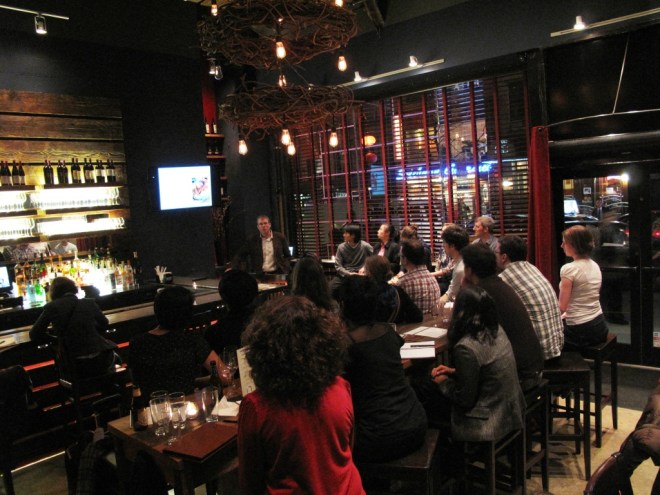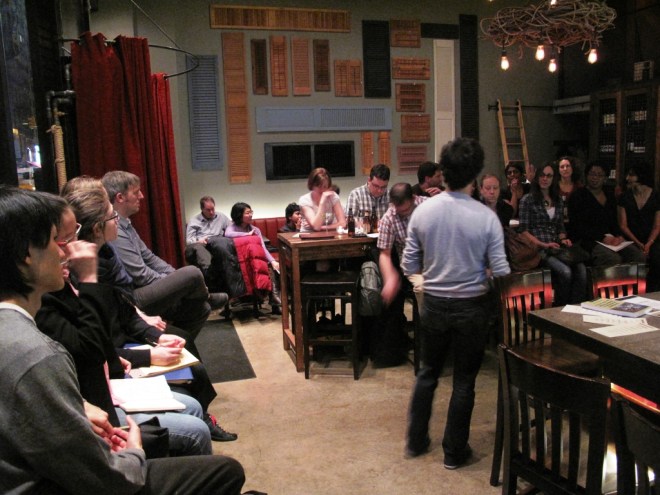One of my papers just got published in the current issue of the Journal of Modern African Studies (Cambridge; 8/66 in Area Studies). In “‘When we launched the government’s agenda…’: aid agencies and local politics in urban Africa” I challenge the argument that the main cause of political impasse in African cities governed by opposition parties is incomplete decentralization, whereby a devolution of responsibilities is not matched by a downward reallocation of resources. Instead, I posit that we need to look beyond the national scale to uncover drivers of institutional change. I show how this dynamic has played out in Freetown where urban politics were shaped by global aid discourses translated into local policy frameworks through interest convergence between international and national actors. At the same time, the case of Freetown case also demonstrates how local politics successfully challenged the technocratic, apolitical reinvention of urban governance perpetuated by the international aid industry.
Virtual APSA panel on issues of and responses to Internet governance goes (a bit) viral
Hurricane Isaac won, or so it seemed: this year’s meeting of the American Political Science Association was canceled last-minute, mostly because few participants were able to actually get to New Orleans. However, thanks to the organizational skills of my unweary co-author Tobias Denskus, some of the presenters scheduled for a panel on “Issues of and Responses to Internet Governance” got together virtually instead. JP Singh of George Mason University and Mikkel Flyverbom of Copenhagen Business School presented their research on “Representing Power: Participation and Deliberation in ICT4D Projects and Internet Governance,” and Tobias and I gave our paper on “Do Social Media Reproduce or Challenge Global Development Rituals? A Content Analysis of Blogs and Tweets on the 2010 MDG Summit.” Jane Fountain of UMass Amherst chaired the session, and Irene Wu, Consumer Research Advisor in the Consumer and Governmental Bureau of the Federal Communications and adjunct professor at Georgetown, provided very useful comments. Tobias posted the video of our virtual panel here. The bloggers at Duck of Minerva already shared it as part of their growing collection of virtual APSA 2012 events (#virtualAPSA2012), and so has UT Austin doctoral student Luke Perez on his blog. Who knows, maybe this way we end up mobilizing a larger audience for our work than if we had given a 1.0-style presentation in New Orleans?
Down south: from DC to New Mexico
From the nation’s bustling capital across some of the poorest and most unequal parts of the country, a journey into radical politics and deep religiosity (and good food)… Am I finally returning to Afghanistan? No, this time I have set out to explore heretofore unseen territories in the United States of A., the fatherland of contradictions: its Down South. Starting out in contested DC–according to the U.S. Census Bureau the most unequal place in the entire nation–across Virginia into Tennessee and then Arkansas, two of the poorest States; crossing Texas east-to-west, and then into New Mexico. Arrival in Las Cruces: August 8, 2012.
The World Bank needs a strategic arbiter, not a narcissistic insider
Who is going to be the new World Bank President? For one man and his supporters, there is only one viable candidate for this position: he himself. In a recent Washington Post op-ed, he has laid out his unique set of experience and expertise. Those who dare to cast any doubt are either tackled head-on (see, for instance, the evolving debate in The Nation) or ignored (especially noteworthy when the critic is someone who happens to know the Bank much better than the contender). He also pitches himself against Larry Summers, which, in David Korten’s words, is “a rock bottom standard.” Besides, it also is a substantively questionable position since both candidates are actually quite similar. Both started out as academic prodigies who, unable to reflect and learn from mistakes, have since placed their bets on top-level political appointments in order to further their career and attain global fame. Both have thus been, for many years, political insiders who are utterly convinced of their intellectual superiority. Both consider the Bank a vehicle to carry out their visions of how global development should “happen.” And both are U.S. citizens. On the flipside, neither of them has a track record of respecting intellectual diversity, brokering agreements between stakeholders while staying on the sideline, or transforming a global organization in ways that would have won them the respect of those working for and those depending on it. But those are the very qualifications that the new World Bank President should bring to the table in order to lead effectively. And it times of rising regional superpowers such as Brazil, India and China, a hue of humility would probably be quite helpful, too.
DGSG pre-conference in New York City: successful pilot of a new interactive format
On Thursday, February 23rd, a diverse crowd of over 30 professors and graduate students gathered at Bar Basso in midtown Manhattan for the 4th AAG Development Geographies Specialty Group’s Pre-Conference. Seven presenters each delivered a seven-minute policy plea on issues ranging from land use and fair trade certification “on the ground” to the management of e-waste, Vietnam’s recent growth and inequality trajectories, and the practice of development as a political process. The group then met for dinner across the street and spent the next two hours debating and networking. Click here for the complete program. The next DGSG Pre-Conference is planned for 2013 in Los Angeles, CA.
New CGD working paper on health aid effectiveness ranks DFID highest, UN low
Building on the growing body of empirical literature on aid effectiveness–including two of my recent publications—Amanda Glassman and Denizhan Duran at the Center for Global Development just published an interesting working paper that achieves two things simultaneously: it provides an excellent overview of the dramatic increase of Development Assistance in Health (DAH) globally during the past decade while also, for the first time as far as I am aware, ranking the individual performance of national as well as multilateral donor agencies in DAH. Echoing some of the findings documented in a recent paper by Bill Easterly and Claudia Williamson published in World Development, their analysis uncovers wide variation in both allocative efficiency and DAH agencies’ effectiveness as reliable, transparent and supportive partners for institutional development in recipient countries. The UK’s DFID ranks highest overall, followed by the Dutch and Danish aid agencies. GFATM is the highest-ranked multilateral agency in the sample. Conversely, selected UN agencies (clustered) rank lowest among multilateral organizations. Major bilateral donors such as Japan, Belgium and France also find themselves at the bottom of Glassman’s and Duran’s results.
Join for the 2012 AAG Development Geographies Specialty Group Pre-Conference in New York City
Members and guests of the AAG’s Development Geographies Specialty Group (DGSG) will meet on Thursday, February 23, from 5PM until 8PM in midtown Manhattan for the 2012 DGSG Pre-Conference. Click here for the event poster. Drawing from their own research, 7 presenters will each deliver a 7-minute Policy Plea, followed by open discussion in plenary session. We are reaching out to local non-academic audiences and hope to attract a diverse crowd of scholars and practitioners. There is no conference fee and all are welcome; registered members of the Development Geographies Specialty Group will receive an on-site $10 discount toward their food bill. RSVP is requested by Monday, February 20. Please send a brief message with your name and affiliation to dgsgpreconference(at)gmail.com to confirm your attendance.
About.com and Good Generation posts on Kara’s and my World Development article
A colleague (thanks, John!) just alerted me that Joanne Fritz, in a recent post on About.com, included a really neat discussion of Kara’s and my recent article in World Development as “Food For Thought“. Thien Nguyen-Trung also covered the piece and posted an excellent summary and comments on his blog, Good Generation.
DW interview on QDDR: no blueprint for other countries
DW Deutsche Welle (the “German BBC”) recently interviewed me on the State Department’s First Quadrennial Diplomacy and Development Review (QDDR). Professor James Davis at St. Gallen University, Switzerland and I were asked to comment on whether the mainstreaming of development policy into diplomacy is an approach that other countries should consider as well. What a neat opportunity to share my “concern about the QDDR as a blueprint [since] ‘we know from scores of failures in development policy in the past 30 years that blueprint approaches have never really worked. What have worked are localized approaches. […] Ultimately what distinguished [many] European countries in the global development arena, namely the independence of development policy from foreign policy, is going to be washed out.'” The critical point is that this would likely hamper aid effectiveness provided that the ultimate goal really is to alleviate suffering as opposed to championing particularistic policy agendas. Read the complete article here.
How the World Bank Institute spin-doctors urban development
In June, I attended a new event format launched by the World Bank Institute (WBI). The Innovative Cities: Global Dialogue brings together mayors, corporate interests, some fig-leaf activists and a large number of Bank staffers (and presumably academic researchers as well, though I saw very few) to discuss urban development challenges and opportunities. UN-Habitat and the Bank’s own Cities Alliance have been organizing similar gigs for years, so WBI is a little late… but better late than never.
I just finished watching the short clip on the event produced by WBI and circulated among participants earlier today. I am aghast… the Dialogue that I went to in June produced few new substantive insights. It did not, for instance, shed much light on concrete success factors to truly sustainable (triple bottom line?) partnerships. Nor did it raise the critical question to what extent, if at all, these can be generalized across regions. And what about urban democracies versus corporate machine politics?
Instead, almost all of the hand-picked panelists proclaimed ubiquitous urban win-win scenarios. Except for some of the mayors (thankfully!) and, if I recall correctly, two comments from the floor, speakers eclipsed the trade-offs inherent in urban economic growth–especially in the poorest countries that the Bank is allegedly so concerned about–by assiduously ignoring a wealth of empirical studies documenting challenges faced by urban micro initiatives that campaign for more equitable access to social services, some of which result directly from the elitist quest for “economic growth” (or is this now being used as a politically more digestible proxy for employment generation?).
During lunch break, I heard several critical voices whose concerns are echoed in my critique above. I was also approached by a fellow with a video camera who asked me for a 30-second statement on the morning session. I told him that my comments would not be too charming and that he might want to seek out more benevolent interviewees. No, he replied, critical perspectives were “exactly what [we] want to hear” in order to “produce a more balanced documentation.” Needless to say, I guess, that for some strange reason they aren’t featured in the clip.
All in all, an opportunity missed. Or maybe not: lunch was great. And economic growth, WBI-type, rules.






You must be logged in to post a comment.